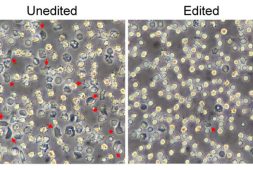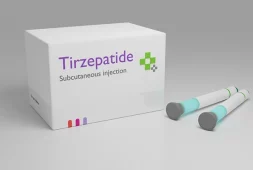
Tomatoes boast a spectrum of advantageous nutrients, notably potassium and lycopene. A recent investigation indicates that the consumption of approximately one substantial tomato daily is associated with a noteworthy reduction in heart-related risks among individuals aged 55 and above.
The American Heart Association (AHA) strongly advocates the inclusion of tomatoes in one’s diet, particularly for individuals grappling with high blood pressure. This recommendation stems from the high potassium content in tomatoes, recognized for its ability to alleviate hypertension.
Adding to the growing body of evidence supporting the cardiovascular benefits of tomatoes, a recent scientific paper provides additional credence to the impact of this fruit on heart health. Conducted in Spain, the study encompassed over 7,000 adults aged between 55 and 80. The findings revealed that the daily consumption of the equivalent of one large tomato, approximately 4 ounces, could result in a remarkable 36 percent reduction in the risk of high blood pressure. This underscores the potential of tomatoes as a potent dietary ally in promoting heart health among the aging population.
“Tomato is one of the most consumed, widely available, and affordable vegetables worldwide, and it is an important component of the best diets, such as the Mediterranean diet,” wrote coauthor Rosa Maria Lamuela-Raventós, MD. She is the director of the Institute for Research on Nutrition and Food Safety as well as an associate professor at the University of Barcelona. “Tomato consumption may play a favorable clinical role in the prevention and management of elevated blood pressure.”
The research, which was released in November through the European Journal of Preventive Cardiology, conducted a comprehensive examination spanning three years with a predominant representation of female participants, constituting nearly 60% of the study cohort.
At the study’s commencement, slightly over 82% of the participants exhibited elevated blood pressure levels. However, it is noteworthy that all participants shared common factors predisposing them to a heightened risk of cardiovascular issues. These factors encompassed conditions like diabetes, smoking habits, elevated cholesterol levels, obesity, a familial background of early-onset cardiovascular disease, or a combination of these risk elements. Thus, the study encompassed a diverse group of individuals, each facing a distinctive amalgamation of risk factors for heart-related complications.
Lower Heart Disease Risk Due to High Tomato Consumption
The individuals with elevated blood pressure were classified into three groups by the researchers:
- Grade 1 hypertension: Systolic 140 to 159 mmHg, Diastolic 90 to 99 mmHg
- Grade 2 hypertension: Systolic 160 to 179 mmHg, Diastolic 100 to 109 mmHg
- Grade 3 hypertension: Systolic 180 mmHg or higher, Diastolic 110 mmHg or higher
As per the AHA, normal blood pressure is defined as systolic less than 120 and diastolic less than 80.
Throughout the study, participants were not only subjected to various assessments but also provided detailed information about their dietary habits and physical activity through questionnaires. The evaluation of daily tomato consumption was derived from specific items in the food questionnaire, encompassing raw tomatoes, tomato sauce, and gazpacho—a cold Spanish tomato soup enriched with extra-virgin olive oil, garlic, and assorted vegetables.
The participants were then divided into four distinct groups based on their daily tomato consumption, ranging from the lowest group, which ingested 1.5 ounces of tomato or less, to the highest group consuming about 4 ounces or more.
Dr. Lamuela-Raventós and her research collaborators made noteworthy observations indicating a correlation between increased tomato consumption and reduced blood pressure readings. Notably, the highest consumption group exhibited a 36 percent lower overall risk of hypertension compared to the lowest consumption group. Additionally, the researchers identified a significant decrease in the diastolic measure (down 0.65 mmHg) in those consuming a moderate amount of tomatoes compared to individuals in the lowest consumption group.
It is essential to highlight that the observed reductions in both systolic and diastolic blood pressure were statistically significant only among participants classified with grade 1 hypertension, rather than in groups with higher blood pressure levels. These findings emphasize the potential benefits of incorporating tomatoes into one’s diet, particularly for individuals with milder forms of hypertension.
“The absence of an inverse association between tomato consumption and blood pressure in grade 2 and 3 hypertension could be attributed to the elderly nature of the study population, most of whom had long-standing hypertension at baseline, as well as high cardiovascular risk factors that make it difficult to reach significant change,” the authors had written.
Tomato – Part of a Healthy Diet
Numerous prior studies have proposed the potential benefits of tomatoes in relation to blood pressure, although the authors of the current study acknowledge the inconsistency in previous findings regarding the actual impact of tomatoes on heart health. Nevertheless, they hypothesize that tomatoes might contribute to the improvement of blood pressure due to the presence of specific minerals and compounds, such as lycopene, known for their antioxidant and anti-inflammatory properties.
Dr. Sean Heffron, a preventive cardiologist and director of fitness-focused cardiology at the Center for the Prevention of Cardiovascular Disease at NYU Langone Heart in New York City, cautions that the study’s limitations lie in its reliance on self-reported data and its basis on observational analysis. He points out that the results are not derived from a randomized clinical trial, where tomato consumption and its effect on blood pressure would be precisely and uniformly measured in a closely monitored group of participants. This methodological distinction underscores the need for further research to establish a more definitive connection between tomatoes and their potential impact on blood pressure.
“That said, we already have randomized clinical trial data to support that diets rich in whole grains, fresh fruits, and vegetables can help reduce blood pressure,” Dr. Heffron, who was part of the study, shared.
Diets similar to these also meet the standards set in the guidelines from the American College of Cardiology and the American Heart Association.
He also cautioned against focusing on the tomato as “the magic food that is going to cure all your ills,” and suggesting instead that it be considered a part of a varied and wide heart-healthy diet.



